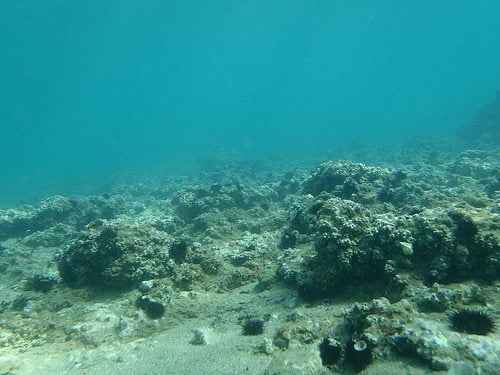

Environment
Deep sea mining ‘highly questionable’ once costs are weighed up, say campaigners
Deep sea mining, the relatively new activity that looks to extract resources such as gold, cooper and zinc from ocean beds, has been criticised by campaigners in London.
A conference was held on Wednesday at the Cumberland Hotel, where members of the industry gathered to discuss its future. They were greeted at the door by campaigners handing out leaflets, claiming that the activity has a costly impact on the environment.
Richard Solly of the London Mining Network said, “We are highlighting to summit participants the risks of investing in this ‘frontier’ industry – not only is there strong opposition from civil society where ever it’s been proposed but its viability is highly questionable once the economic, environmental and social costs are weighed up.”
Natalie Lowrey of Deep Sea Mining Campaign said in a recent article that we are “out of our depth” on deep sea mining, adding that more scientific work must be carried out before the industry can be allowed to continue to operate.
Speaking to Blue & Green Tomorrow, Lowrey said, “There has been no independently verified research conducted in advance of any mining being permitted. This research would have to demonstrate that neither communities nor ecosystems will suffer long-term negative impacts.”
The campaigners called for a moratorium on all deep sea mining activity until thorough risk assessments had been carried out, investigating the extent of the social and environmental impact of the industry.
Researchers raised environmental concerns over leaks, spillages and corrosion that could alter the chemical makeup of areas and potentially harm marine life.
Further reading:
Marine conservation could be worth ‘billions’ to UK economy
Scientists disappointed with government’s protection of seas


 Environment12 months ago
Environment12 months agoAre Polymer Banknotes: an Eco-Friendly Trend or a Groundswell?

 Features11 months ago
Features11 months agoEco-Friendly Cryptocurrencies: Sustainable Investment Choices

 Features12 months ago
Features12 months agoEco-Friendly Crypto Traders Must Find the Right Exchange

 Energy11 months ago
Energy11 months agoThe Growing Role of Solar Panels in Ireland’s Energy Future




























